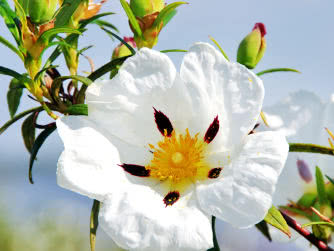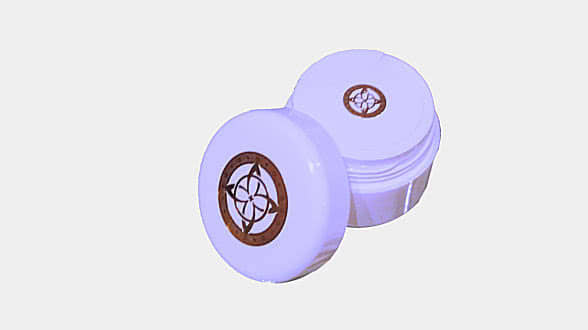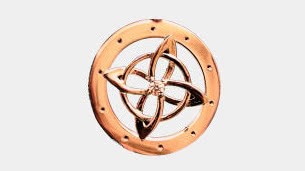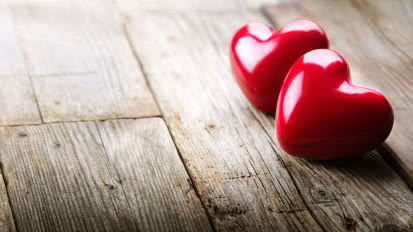 The training
The training
people wishing to become independent perfumers and perfumery professionals.
Training focused mainly on natural perfumery and artistic perfumery.

The designer-perfumer training provided by ESPC is a practical training allowing to acquire key skills, to join the ESPC network of top suppliers and to support the start of the activity as an Independent Perfumer.

Contact us
Standard hourly rate with equipment and tools 100 Frs. TTC
Hourly rate for privatization 400 Frs. TTC
Full-time training + internship
Continuing training by modules
ESPC training covers all the disciplines essential to the independent creative perfumer
- Introduction to natural perfumery 10h
- Presentation of high perfumery and artistic perfumery 10h
- The creator's journey: presentation of the stages and the program 10h
- The raw materials of the perfumery 100h
- Personal fragrances 50h
- Home fragrances 20h
- The history of perfume and tradition 15h
- The olfactory families 15h
- The regulation 50h
- Good manufacturing practices 20h
- Relationship marketing 40 h
- Communication and advertising 40h
- Bottling and packaging 20h
- The visual identity and
hot foil stamping 20h
-The olfactory maps and
modeling
20h
- Value creation 40h
- The optimum profitably 20h

ESPC has chosen to cover both 100% natural perfumery, high perfumery and artistic perfumery.

The work with natural materials makes it possible to effectively develop creative skills useful in all areas of perfumery, with objectives going beyond olfactory pleasure in the case of natural perfumery.

Precious raw materials, extraction processes, search for the best qualities, olfactory richness, vintages, climatic conditions, well-being by plants, aromatherapy are the richness of natural perfumery.

The current trend in chic well-being corresponds to a growing expectation to which natural perfumery ideally responds.
The ESPC offers a traditional and innovative approach, highlighting links with other disciplines.

For the ESPC, high perfumery is part of the continuity of natural perfumery with the possibility of using synthetic molecules existing in their natural state. The use of molecules of identical synthetic nature allows the perfumer to considerably extend his palette while meeting the expectations of well-being.

Natural identical molecules offer a variety of unique fine, brilliant, metallic, mineral and fine notes that form a subtle setting that effectively contributes to the enhancement of rich and complex natural notes.

The ESPC must enable the creative perfumer to meet a wide range of expectations while working to make connoisseur compositions appreciated. The training allows the creative perfumer to build a complete offer, from buying on the shelf to custom perfume, workshops and personalized perfume.

The ESPC considers the artistic perfumery taught by Nicolas de Barry ww.nicolasdebarry.com as a turning point in the history of perfumery.

More customers want to be involved in their consumption choices. The increase in free time offers new opportunities for personal development.

The abundance of consumer goods is changing the values of differentiation in favour of personal qualities. Artistic perfumery participates by introducing a wider public to the composition of perfumes.

Artistic perfumery promotes creativity. The compositions focus on scents and fragrances. There is no objective of producing a cosmetics for the general public but a perfume to be smelled without the constraints of "ready-to-wear".

From learning to creation, the creator's journey requires time and practice.

The ESPC offers a comprehensive approach based on a step-by-step progression from technique to artistic intuition.

Introduction to neurolfactive programming (NOP): letting go and creativity.

The objective of successful training.

The ESPC attaches great importance to the history of perfumery. The creative perfumer is part of a long tradition that he must know.

The fragrance dates back to the earliest civilizations and developed with them.

Egypt, Hebrew People, Ancient Greece, Rome, The Middle Ages, The Renaissance, from the 18th to the 21st century.

The knowledge and memorization of odours is an essential step in the creator's journey.
Several hundred materials are made available.

Geographical origin, classification, characterization, chemotype, properties are briefly studied. The differences in the quality of natural materials are carefully studied.

The emphasis is on the use of the corresponding notes in perfumery and the remarkable fragrances that use them. The essential notions of organic chemistry are only discussed when they are of interest to the perfumer.

To know the main natural materials of perfumery (>500).
Memorize materials, agreements and basics. Work on the evocation, the feeling.
Prepare the creative work.

The specificities of personal perfume.
Remarkable personal fragrances.

The main creators and their creations.

As a source of inspiration.

Today, the home fragrance receives little attention. However, body fragrance has not always had primacy.

The ESPC proposes to give back to perfume to spread the place it deserves, especially with regard to expectations of well-being that have become unavoidable.

The two main axes are well-being and olfactory experience. Interior design focuses on visual harmony, comfort and sound atmosphere but rarely on a complete sensory experience.

The training program includes several fragrance creations to be distributed for specific objectives.

Learn marketing techniques.
Evaluate a campaign.
Segment an audience.
Optimize the return.

The most used techniques in the world of perfume.

Which strategy for which objectives?
Creation of an A-Z campaign.

Multi-national relationship marketing manager.

Know the olfactory families.
Know the remarkable flavors.
Compose standard chords.

Hesperidated
Floral
Fern
Cyprus
Woody
Amber
Leather

perfumes
Guerlain, Dior, Chanel, Lancome,
Rochas, Givenchy,
Laroche, Lanvin,
Hermès...

Which subjects for which families?

Use families to evaluate a composition.

Use basic agreements to compose personalized fragrances (perfume).

Evaluate the different risks for the manufacturer, the customer, the environment.
Define health, safety and environmental measures.

Define standard procedures for production.
Labelling.
Batch tracking and tracing.
Self-control and transparency.

Know the standards.
Know the regulatory and supervisory bodies.
IFRA benefits and knowledge limitations.

What innovations for zero waste quality excellence.

Be familiar with EU and CH regulatory requirements.

Fill in the marketing forms.
Obtain independent evaluations.

The network provides assistance to share costs and obtain discounts.

Build a diversified range to build profitability.
360-degree opportunities.

Benefit from the network's feedback.

Subcontract specific activities to network members.

Pool suppliers.

How to create universes in a pragmatic, fast and economical way.

Use of network graphics software.

Create your website.
Create your paper supports.
Use video editing.

Sell on a dedicated shared platform.

How to choose the right one?
What is the purpose of the visual identifier?
How to choose the brand name?

Register your brand.
Create your identity.

Gilding box and vials.

Following the example of the merger of perfumery and haute couture, what synergies can we consider today?

Know and use an olfactory card.
Create or let yourself be guided.

Brief or story board?

How to evaluate a perfume?

The network offers a wide choice of vials at ultra-competitive prices.
Create your own precious bottles for small series.

The network provides bottles adapted to the needs of the Independent Perfumer.
Especially with regard to flexibility, elegance, and the zero waste objective.

How to choose packaging that is customizable, elegant, reusable at a lower cost?
Create your own packaging in small series.
Management
and Accounting

Which marketing calendar for the perfumer?

How to build your customer base?

How to choose your key campaigns.

How to evaluate a campaign?
Benefit from the network's feedback.

A workshop specially designed for working with materials and welcoming private customers.

All equipment is available on site.

Possibility of accommodation on site (airBnB).

Outside the courses, the workshop can be used by the trainees with a sufficient level.

Internships are planned to complement the training.

All materials are available.

The adjoining workshop can be used to receive private clients or work on compositions.

To know the technical constraints for the manufacture of custom-made vials.

Enhance a perfume by creating a decorative sculpture.

Evaluate the vials and find new inspirations.